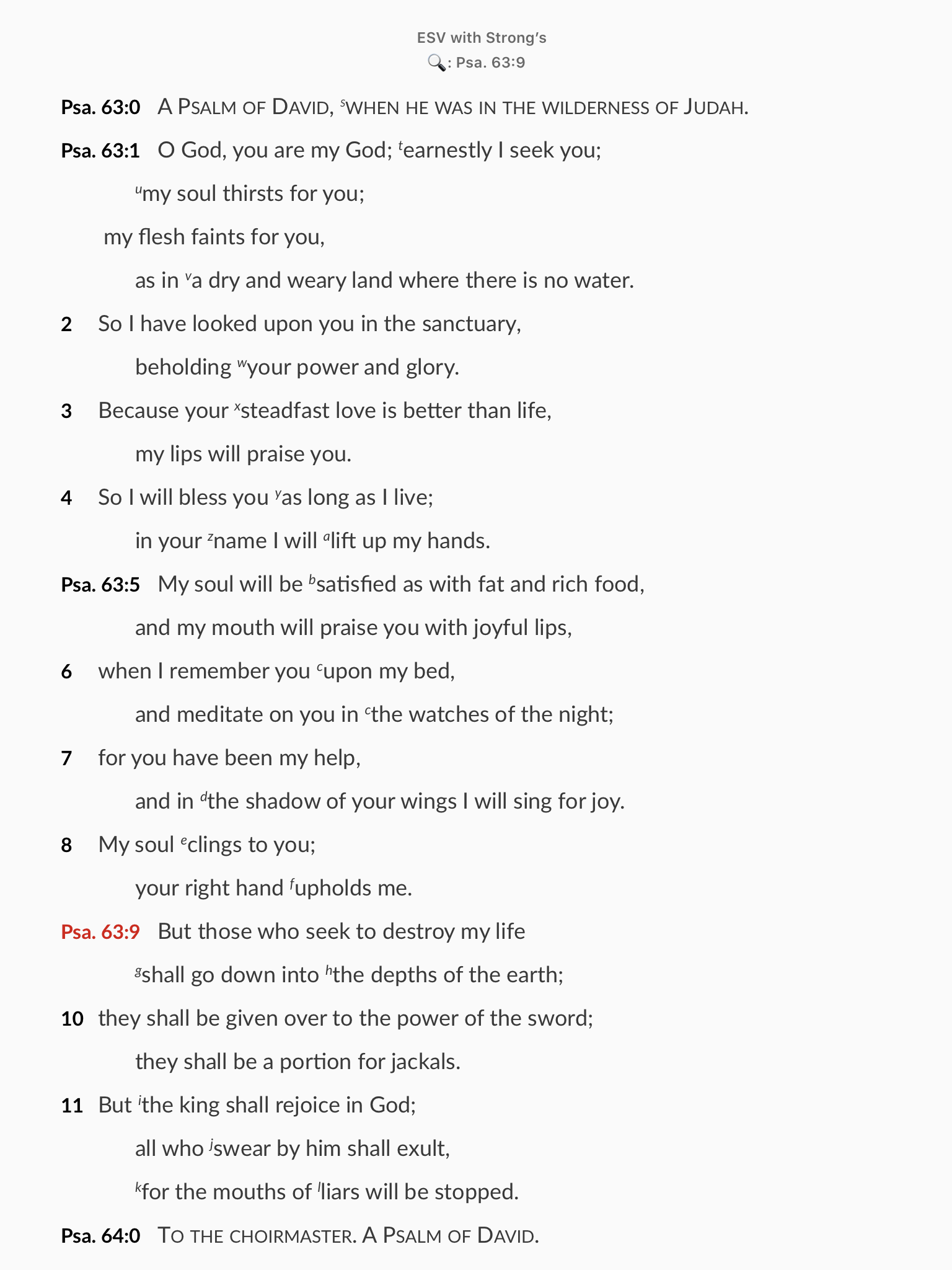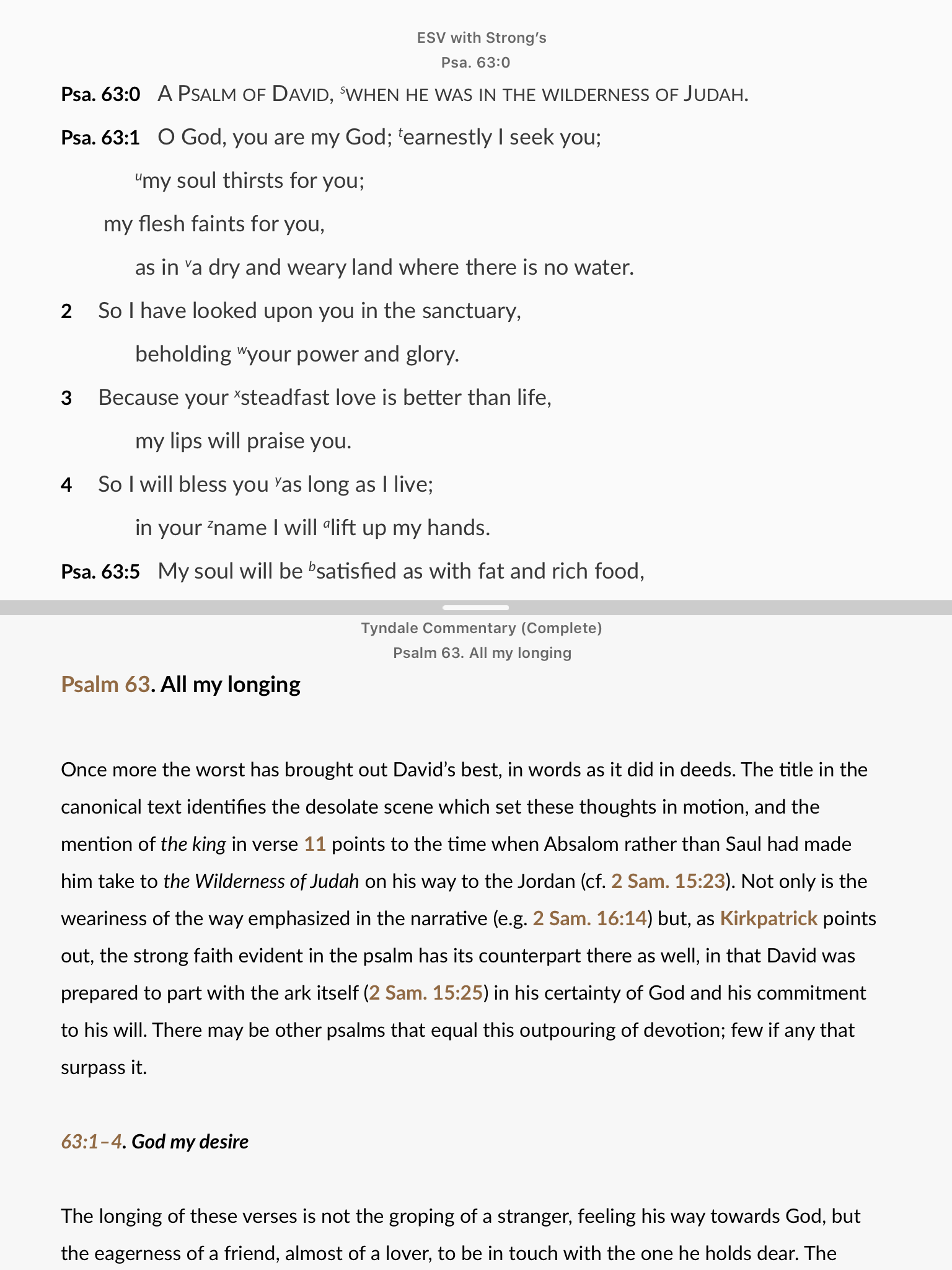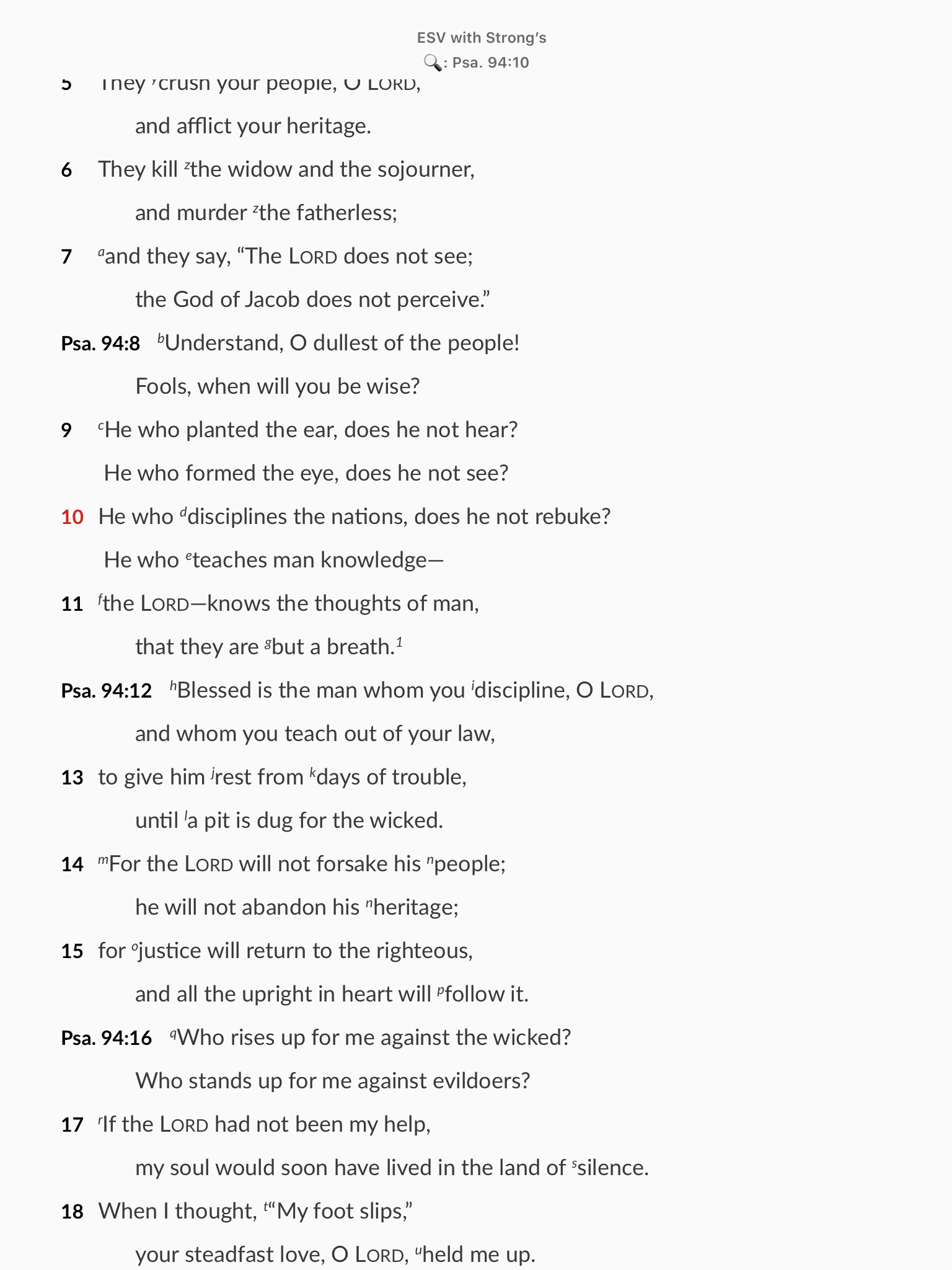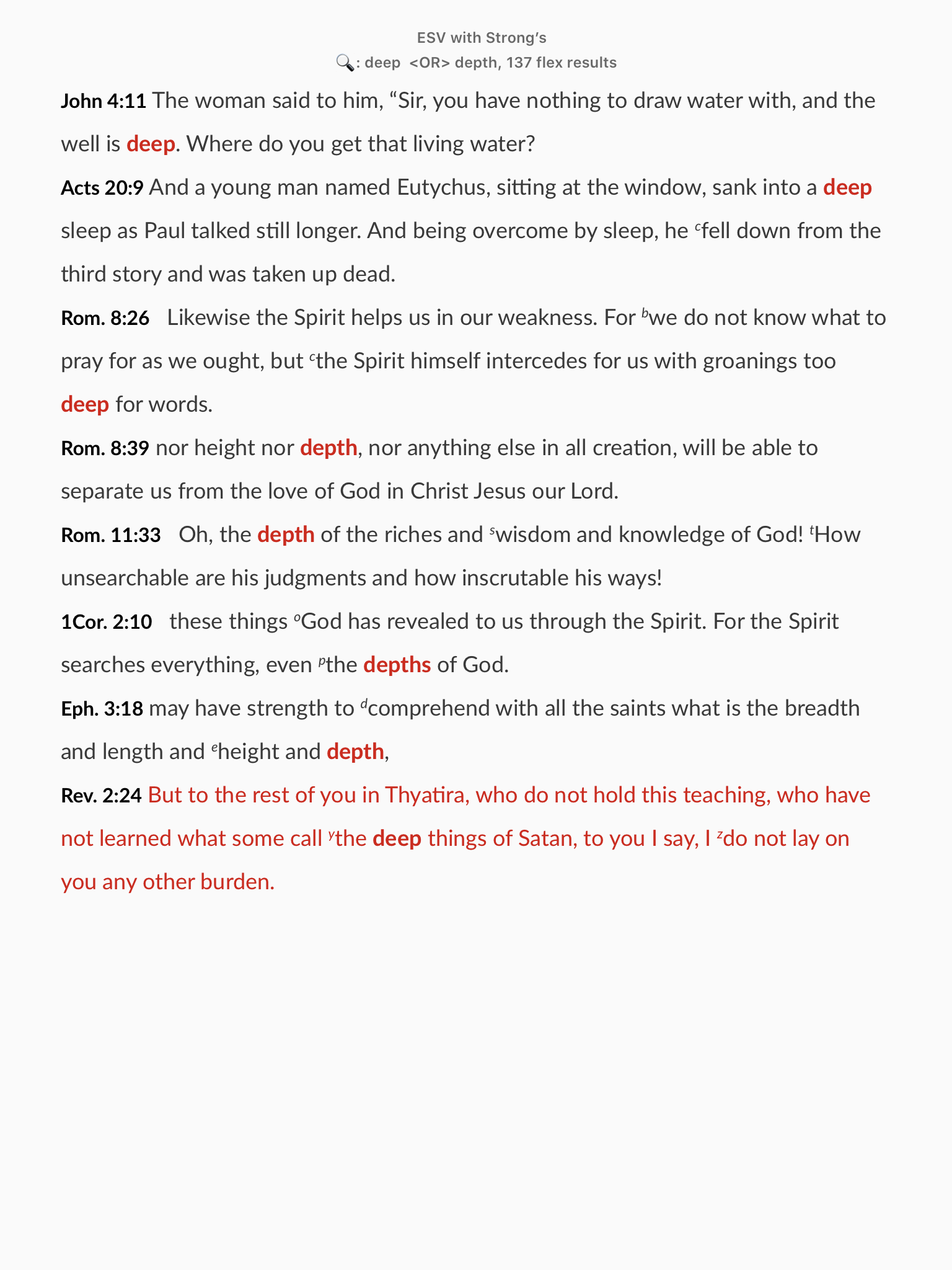Speaking of God, Psalm 92:5b says “Your thoughts are very deep!” Something about the wording made it stick out to me. I think my first reaction was “well duh, of course they are deep.” The sentence seems simplistic, but I like it! It piqued my curiosity: What does “deep” mean in the Bible? I expect it to mean what the English phrase suggests, but maybe there’s more to it, so let’s do a word search and see what comes up.
A parenthetical note: By doing a word search, we are ripping sentences and phrases out of their contexts, so we need to be careful not to read too much (or anything, really) into any of the phrases. To do that, we will not dwell on individual occurrences, but look at the big picture of how the word is used. If we want to dig deeper into any specific verse, we’ll check out the context to be safe and handle the text correctly. Note that this is not unique to Bible study; we should treat anything said or written by anyone the same way.
I start up Accordance on my iPad, do a Word search for “deep <OR> depth” and scroll through the 130-some results.

Right away I notice a few themes. Often, the word is used to describe the ocean depths (Psalm 107:24) or death, like the “depths of Sheol” in Deuteronomy 32:22, Job 11:8, and others. It probably has the same meaning in Psalm 63:9 “the depths of the earth”. Let’s take a little detour here (you never know what you may find!) and look at Psalm 63 in context. I long tap the verse reference and select “Show in Context”.

This brings up the whole Psalm. Reading it, I discover that David wrote it when he was in the wilderness, probably fleeing from someone. The phrase that brought us here, in context, does indeed seem to refer to death or destruction.

A quick look into a commentary reveals that David refers to himself as “king”, which I read but missed the significance of. As the commentary points out, this means he was probably fleeing from his son Absalom and not Saul, which I can read about more in 2 Samuel 15. Great!

Going back to our search results and continuing through them, we find several more instances that have this meaning. But we also see it refer to a place in which God works, a mysterious place of wisdom known only to him. Examples include Psalm 139:15, maybe Ecclesiastes 7:24, and 1 Corinthians 2:10. These passages seem to imply that where God is, we cannot go. He has wisdom and knowledge that we cannot even dream of. He is in a different league, totally other.
Psalm 94, two psalms after where we started, contains a contrast to God’s deep thoughts. This one did not appear in our search—we didn’t search for opposites, after all—which goes to show the importance of context and a limitation of word studies. Psalm 94:10-11 says that “God knows the thoughts of man, that they are but a breath.” A breath compared to the deep, truly a contrast! In this instance, expanding the context to surrounding psalms revealed this passage, but it would have been difficult to find with a word search alone (I suppose “breath” would have caught it, but that’s not a word I normally consider an antonym to “deep”).

Back to the search, I notice the last result in Revelation 2:24. It mentions the deep things of Satan. Curious, we haven’t seen that phrase in any other result. We could take another detour here and look more closely at that passage; maybe it’s a mockery of “the deep things of God”, since Jesus didn’t seem to be the one to have originated that phrase (“what some call […]”). But we won’t go there now.

Here’s what I learned. God’s “deep thoughts” are what the phrase would suggest to mean in English, no surprise here. We found that “deep” and “depth” are indeed occasionally used to refer to God’s wisdom, knowledge, mystery, and power, and I may take a closer look at these passage in the future. But in the vast majority of cases, the phrase just refers to death or the deep ocean. Without any stunning new revelations, did I waste time pursuing this thread? Not at all! Digging deeper into God’s word is always profitable. Our conclusions must be informed by what we find in Scripture, even if it’s not stunning or novel or expected.
Finally, God’s Word cannot be exhausted. That means there’s always more to find, even if we don’t dig up gold or diamonds each time we descend into his deep and hidden mines! Thus, with humility, asking God for help, let us be continuous and eager students of his word, for his glory and our joy!
